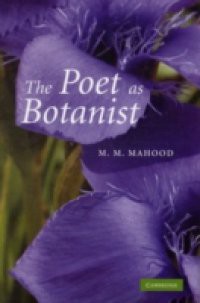For centuries, poets have been ensnared - as one of their number, Andrew Marvell put it - by the beauty of flowers. Then, from the middle of the eighteenth century onward, that enjoyment was enriched by a surge of popular interest in botany. Besides exploring the relationship between poetic and scientific responses to the green world within the context of humanity's changing concepts of its own place in the ecosphere, Molly Mahood considers the part that flowering plants played in the daily lives and therefore in the literary work of a number of writers who could all be called poet-botanists: Erasmus Darwin, George Crabbe, John Clare, John Ruskin and D. H. Lawrence. A concluding chapter looks closely at the meanings, old or new, that plants retained or obtained in the violent twentieth century.

